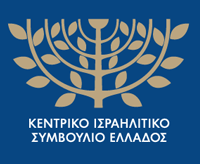THE JEWISH COMMUNITY OF XANTHI
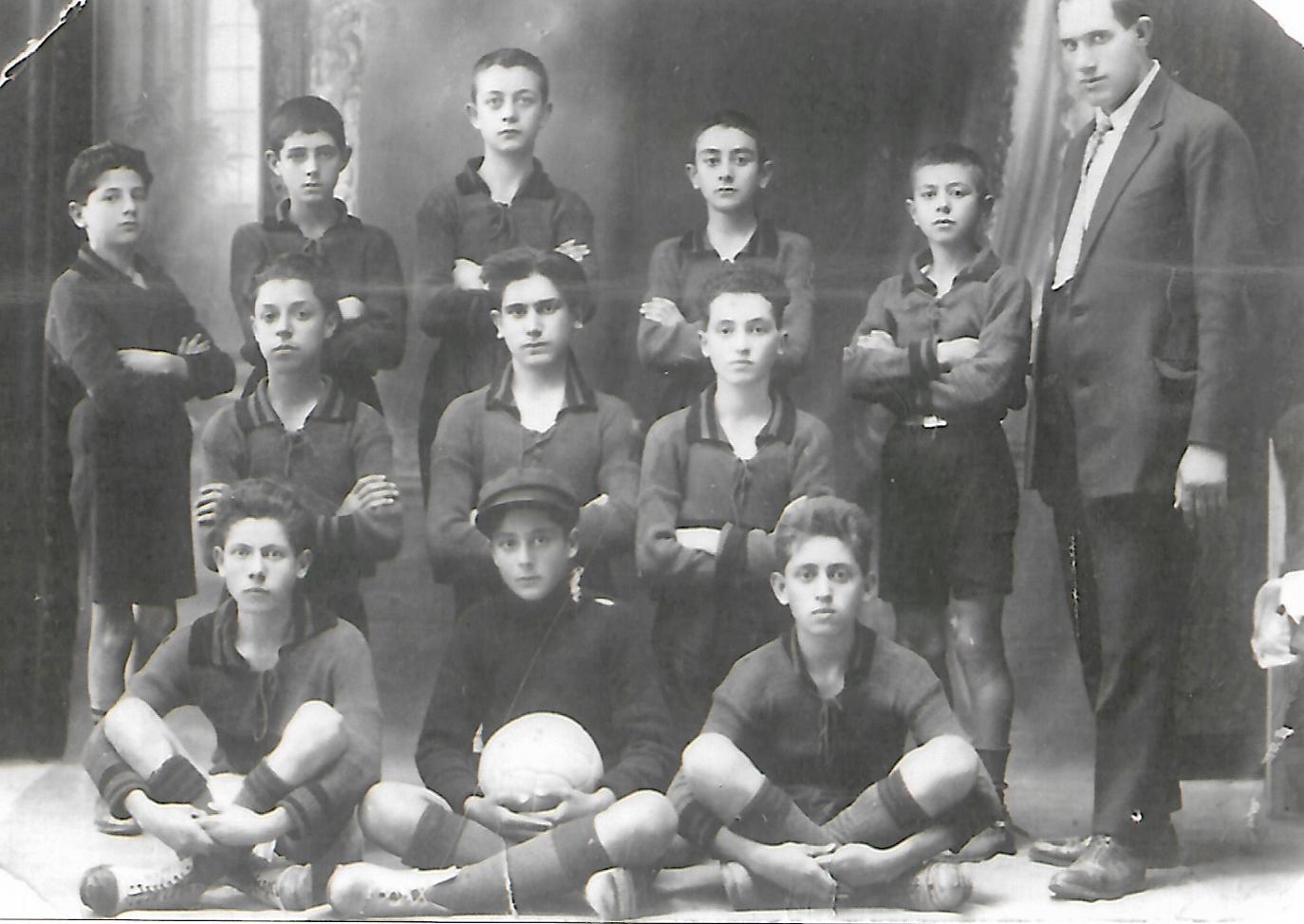 Despite the fact that the time of settlement of the Jews in Xanthi is not specified, it is obvious that descendants of the Spanish Jews - Sephardim - lived in the city, as was also the case with other neighboring Jewish Communities. This version is supported by the fact that the Jews of the city spoke the Spanish-Jewish dialect "Ladino" until World War II.
Despite the fact that the time of settlement of the Jews in Xanthi is not specified, it is obvious that descendants of the Spanish Jews - Sephardim - lived in the city, as was also the case with other neighboring Jewish Communities. This version is supported by the fact that the Jews of the city spoke the Spanish-Jewish dialect "Ladino" until World War II.
Regarding the establishment of the Israelite Community of Xanthi, data from the "Consular Archives of Thrace" shows a report dated 14/12/1907 by the vice consul of Greece to the Ministry of Foreign Affairs, in which the prefect of the region by his decision approved the establishment of an "Israelite Community of Xanthi". At that time there were in the city 234 Jews and 84 "paramigrants" among a population of 15.122 inhabitants consisting of 6.214 Christians, 8.200 Ottomans, 442 Bulgarians, 119 Armenians, 78 Vlach-speaking Greeks, etc.
On 9.5.1924 the Community with representatives David Arditis, Abraham Tabach, Avr. Bello and Geuda Cohen bought a plot of 1.350 m132.000, worth 616 drachmas at the time or 10.7.1924 gold pounds, in order to erect a Synagogue and a Club. The plot was located at the intersection of Anat. Thrace and Cross. Hadjistavrou, and in which the foundation stone was placed on XNUMX. The design of the building was outwardly similar to the Synagogue of Budapest, while to others it resembled that of Adrianople. Next to the Synagogue, the two-story Community Center was built. The Jewish School was housed on the ground floor, the School director's office on the first floor and the Club on the second floor.
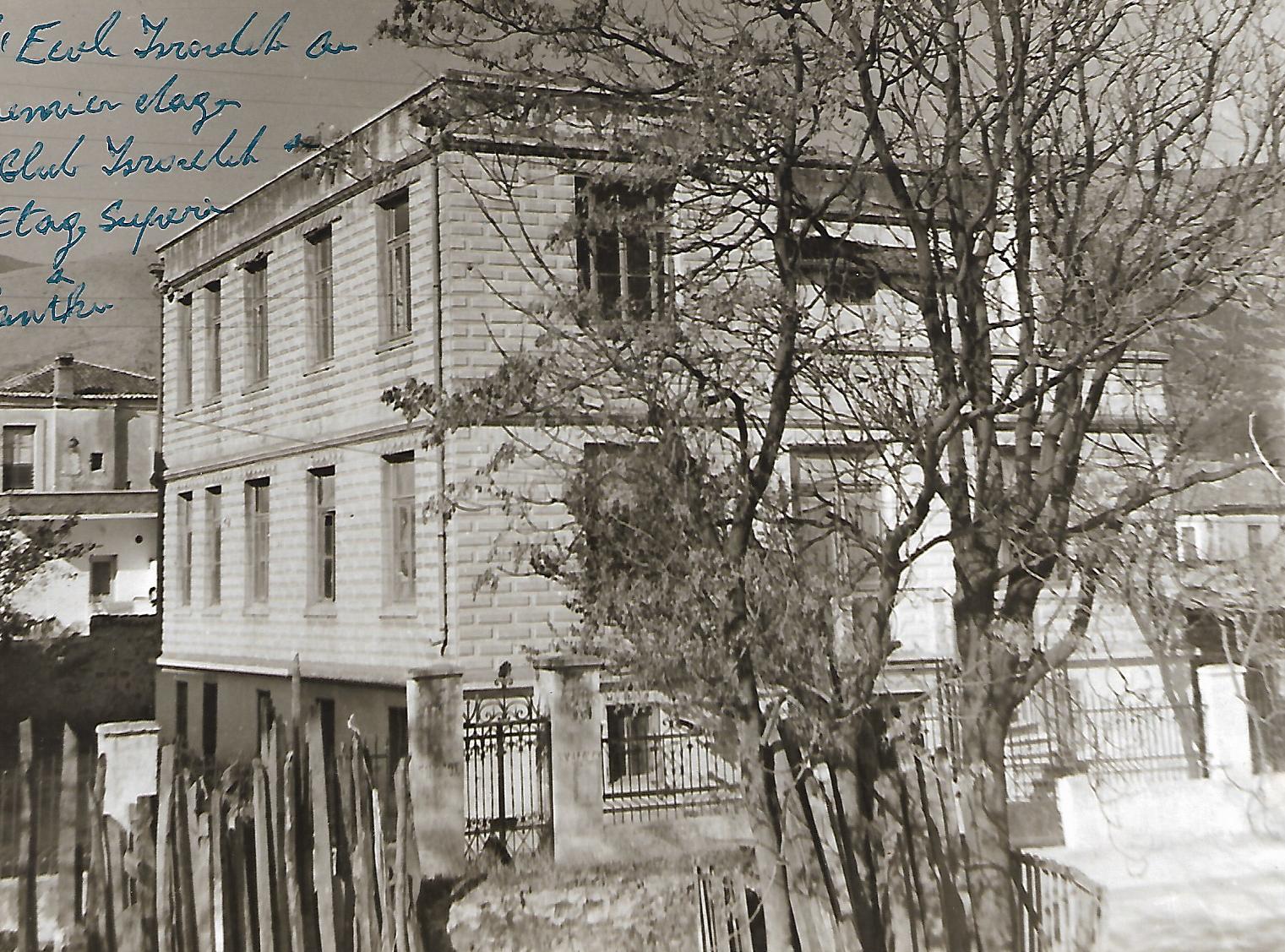
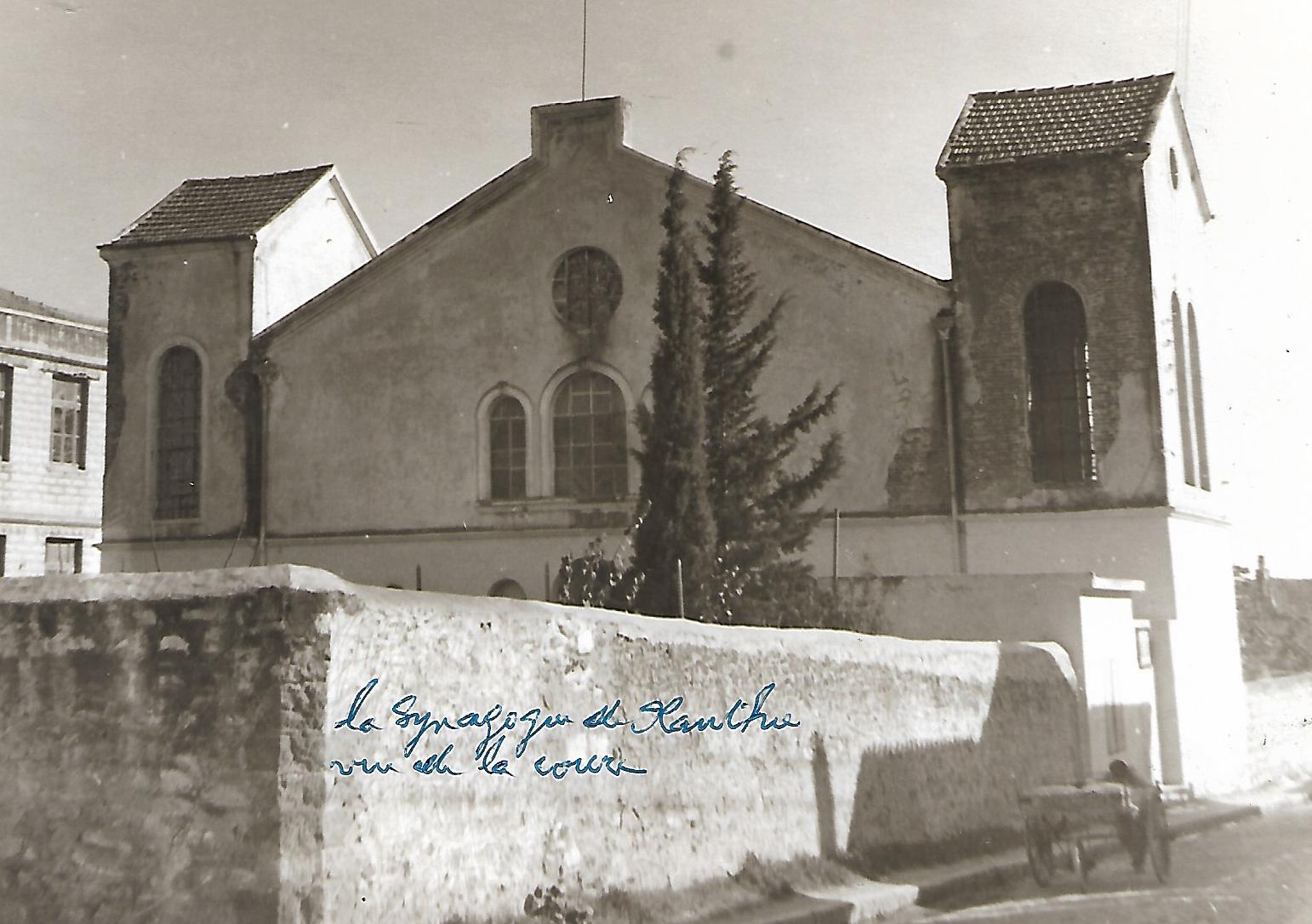 Most of the Jewish homes were located in the degraded area "Pournali" / "Pournari" which today is called "Remvi". The wealthiest Jews lived in the "Upper City". The cemetery, which is preserved to this day, is located on the Xanthi - Diomideia road, after the railway lines. It is walled but in ruins. In it there are some graves from 1923 onwards.
Most of the Jewish homes were located in the degraded area "Pournali" / "Pournari" which today is called "Remvi". The wealthiest Jews lived in the "Upper City". The cemetery, which is preserved to this day, is located on the Xanthi - Diomideia road, after the railway lines. It is walled but in ruins. In it there are some graves from 1923 onwards.
During the Asia Minor disaster of 1922, it is estimated that the population of the Community increased by 700 people. From the following years there was an intense community and religious life. In 1922, Isaac de Botton published the Zionist newspaper "La Fuerza" - the Power - and in 1924 he published the periodical "El Progresso" - the Progress - whose logo stated "Organo de Defense of the Jews of Xanthi". Finally, Botton published "Leumi" - "National" - in 1925 on the occasion of the inauguration of the University of Israel. All three forms were in the "Latino" language. In addition to the operation of the Zionist Association, the Jewish scout group "Maccabi" in 1927, the Jewish Youth troupe, whose performances were praised by the local press, and the Musical Gymnastics Association are mentioned. In the Jewish school, attended by 114 students, French and Hebrew were taught, among other subjects, and 17 teachers were employed.
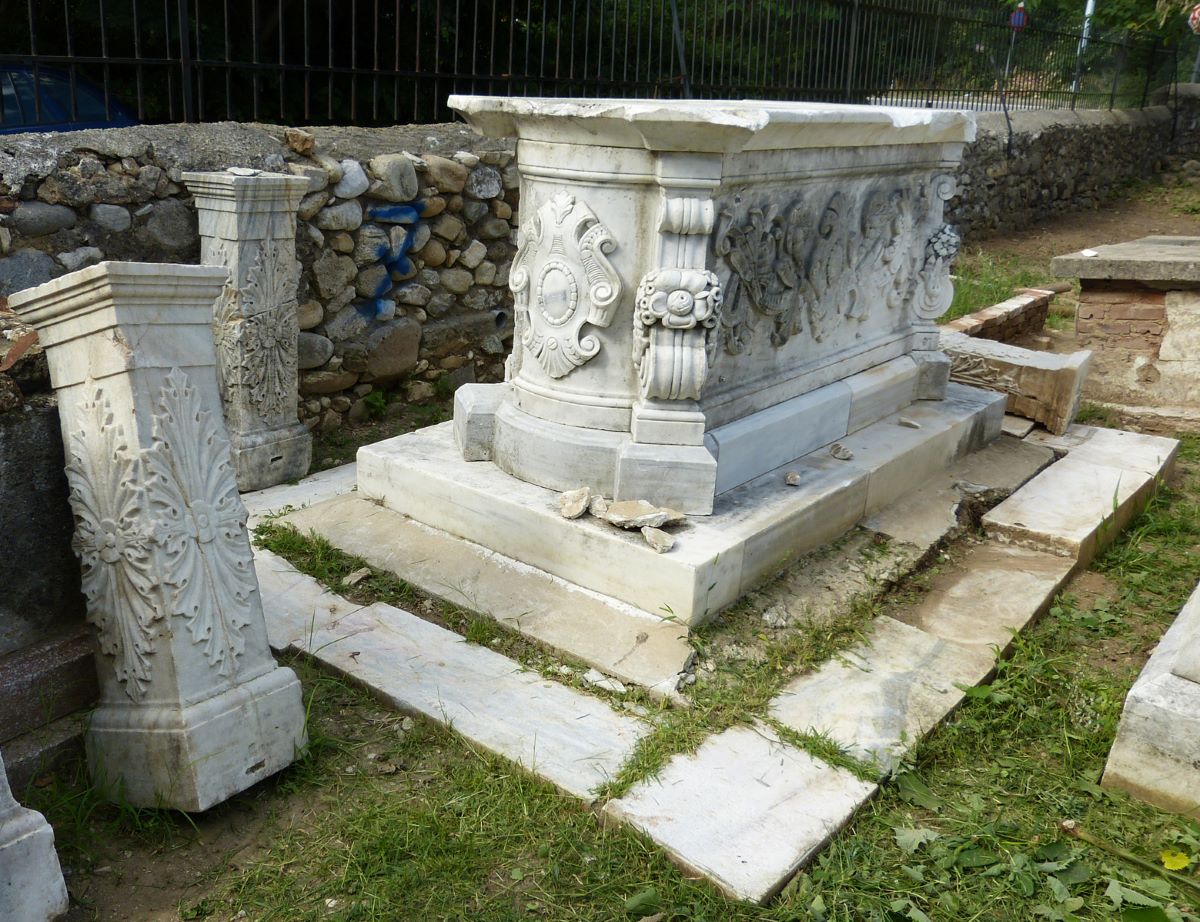
Other occupations of the Jews were the flour industry, trade in cloth, ready-made clothing and haberdashery, tannery and other handicrafts. Until 1934, Leon Amarilios was a municipal councilor, while the president of the Community in 1938 was David Attas.
Despite the fact that the Jews lived a closed social and religious life, they distinguished themselves for the cultural events, theatrical performances, dances, lectures, in which fellow citizens participated, resulting in the development of friendly relations between them. The Jews were considered a peaceful, law-abiding, patriotic and hard-working people in a way that they were considered a progressive people.
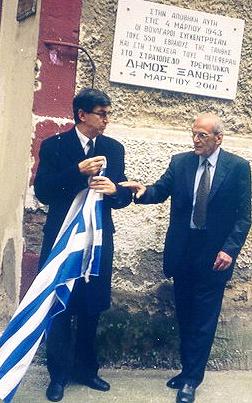
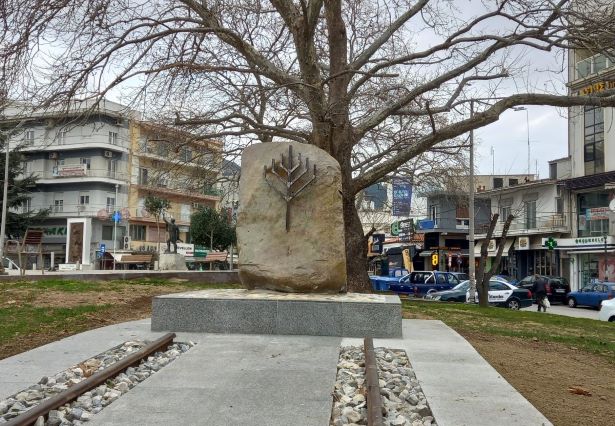 OCCUPATION
OCCUPATION
During the Bulgarian Occupation in 1941 Jews were forced to wear the distinguishing mark of their religion - the yellow Star of David - while they were forbidden to be traders and industrialists. At midnight on 4.3.1944, the Bulgarians arrested the 550 Jews of the city and gathered them in a tobacco warehouse at 1 Salaminos Street. Only 6 were able to escape.
On March 18 and 19, 3, their transport began - through Bulgaria - to the Nazi camps where they all met a tragic death in the crematoriums. The Bulgarians looted Jewish homes and shops while trespassing on corresponding property. The destruction of the Community was total since no one returned to Xanthi and the few survivors settled in other cities. The Community lost 1944% of its population.
POST-WAR
In 1963 the Community Center was sold to the Hellenic Scouts and the Synagogue was demolished in 1995 and an apartment building was erected in its place. Nothing was left to remind the presence of the Jews in the city except the cemetery with the few monuments.
On March 3, 2001, the Municipality of the city held a cultural event in memory of the Jews and the following day, in the tobacco warehouse at 1 Salaminos Street, a commemorative plaque was erected in memory of the Jews to remind the residents of the route and the sad end of the Israelite Community of Xanthi . As part of these events, the book "The Jews in Xanthi", by Mr. Thomas Exarchos, published by the Cultural and Development Center of Thrace (PAKETHRA) was also presented. The plaque was later removed by the building's owners.
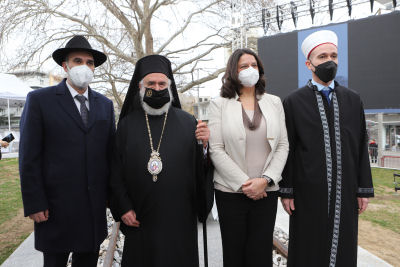 In 2015, on his initiative PAKETHRA and a group of volunteers, the Jewish cemetery of Xanthi was beautified and the graves dated between 1910 and 1938 were registered.
In 2015, on his initiative PAKETHRA and a group of volunteers, the Jewish cemetery of Xanthi was beautified and the graves dated between 1910 and 1938 were registered.
In 2022, the Municipality of Xanthi placed a Holocaust Memorial in Eleftheria Square in memory of the exterminated Jews of the city. The unveiling of the Monument took place on 20.2.22 with the symbolic presence of the Minister of Education Nikis Kerameos, the Metropolitan of Xanthi Xanthi and Peritheori Mr. Panteleimon, the representative of the superintendent of the Muftia, Imam Embliuk Ramadan and the Rabbi of Thessaloniki Aaron Israel, who sent a strong message of mutual respect, solidarity and harmonious coexistence between believers of religions.
